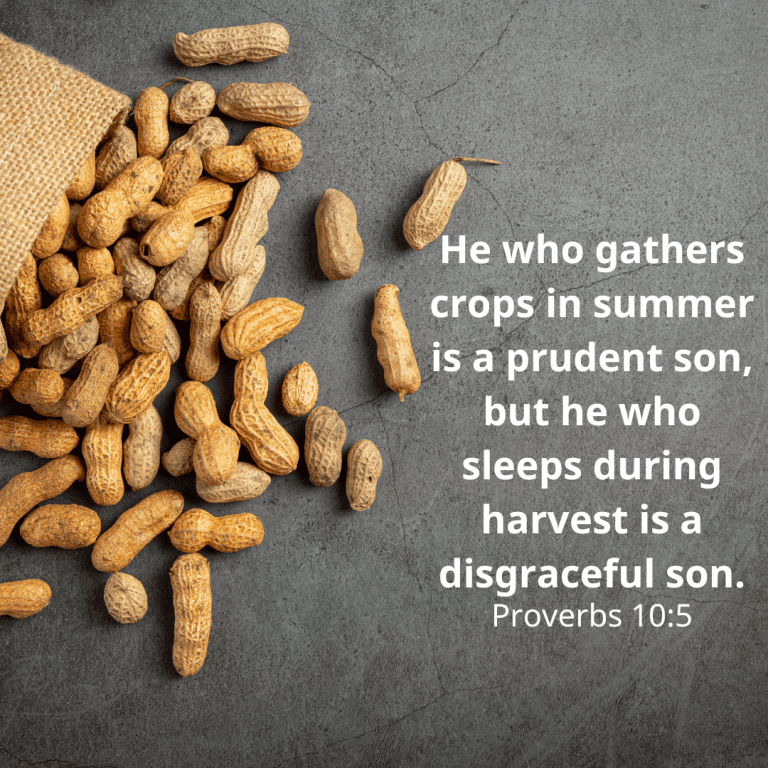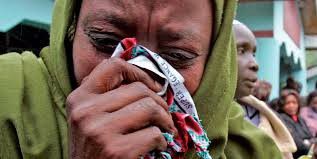Ŋen ŋə-Yesu na ŋəwuji galo yi-Saməriya
1 Ndə Eləŋ Yesu gələŋeṯo ṯa Alfarisiyin yano ṯa gënəŋu gëbəd̶ia led̶a lwaiña ləmateṯa na galnanaica mamuḏiya ləməñaṯo lorəba le-Yuanna ( 2 na Yesu gënəŋu gero gənaica ed̶a gənəŋ mamuḏiya, illi ṯaləmis ilëɽəŋu yalnanaica mamuḏiya), 3 gënəŋu nəŋəməñe alo Yuḏiya nəgabəṯa alo yi-Jalil. 4 Na ŋen gënəŋu gəfo ed̶ad̶ gəməña alo yi-Saməra. 5 Na gënəŋu nəŋeṯa irnuŋ nano galo yi-Saməra gəbërnia Sukar, alo yafo ṯwaiñ alo nano isi Yagub gənaico Yusif, id̶ia gəlëɽəŋu pənde. 6 Ləbu lə-Yagub lafo tu. Na Yesu nəŋəcwarəṯe kaiñ ŋen ŋanṯa gerldo, nəŋəmiñəniano ldəbu ëd̶əñinano. 7 Wuji gənəŋ galo yi-Saməriya nəŋeṯa nəŋau gwonaṯa gəbaɽa ŋawa. Na Yesu nəŋeiṯi wuji ṯa, “Naicəñe ŋawa iṯi.” ( 8 Ŋen ŋanṯa ṯaləmis ilëɽəŋu yabəɽo irnuŋ ṯa ailid̶i ŋəsa.) 9 Wuji galo yi-Saməriya nəŋəmeiṯi ṯa, “Ŋen ŋanṯau aganəŋa agaɽo Alyawuḏ na ageɽəd̶iñe ŋawa, ñiŋgi egalo yi-Saməriya?” (Ŋen ŋanṯa ñaŋ Alyawuḏ na Asamariyin ləgaged̶r.)
10 Yesu nəŋəmuɽəbiṯi eŋen ṯa, “Gəbanṯa agaləŋeṯo d̶ənaica d̶ə-Rəmwa, na ed̶a igi gəlwaɽəṯiaŋa ṯa, naicəñe ŋawa iṯi, ṯa aganəŋa agid̶i ŋameɽəd̶e na gënəŋu gid̶i aŋanaice ŋawa ŋəd̶əməṯia.” 11 Wuji nəŋəmeiṯi ṯa, “Ya Eləŋ, agero agəberṯia arrəmbei, na ləbu loliano. Agid̶i ŋame ŋga ŋawa iŋi ŋəd̶əməṯia? Ləbu na arrəmbei 12 Agoɽra agaməñaṯa d̶aṯa egaiñ Yagub, igi gənaicənde ləbu ildi gënəŋu na ləd̶ia əllëɽəŋu, na d̶wala d̶əlëɽəŋu ləṯiau ŋawa?”
13 Yesu nəŋəmuɽəbiṯi eŋen ṯa, “Ed̶a gəṯia ŋawa iŋi aŋal gid̶i aŋəmare təŋ, 14 orn ed̶a gənəŋ gəṯia ŋawa iŋi egəmanaica gënəŋu gaber gid̶i aŋerṯe d̶ərraŋalano lomanəŋ təŋ kwai kwai, ŋen ŋanṯa ŋawa iŋi egəmanaica ŋid̶i aŋəɽeṯe d̶oro iŋu id̶i d̶ərrəməd̶ia ŋawano bəɽəbəte ŋen ŋanṯa d̶əməṯia d̶əbəɽəbəte.”
15 Wuji nəŋəmeiṯi ṯa, “Ya Eləŋ, naicəñe ŋawa iŋi, ṯa aŋal aŋerṯe gaiñarra lomanəŋ təŋ, na yerṯe igid̶i yoɽəbaṯe nəŋau təŋ.” 16 Yesu nəŋəmeiṯi ṯa, “Mbu ŋundəd̶ia ebaŋgalo ñeṯa ëli.” 17 Wuji nəŋəmeiṯi ṯa, “Egero ebaŋgaiñ.”
Yesu nəŋəmeiṯi ṯa, “Agalwaɽo d̶eṯəm, ndə agaṯa agero agəberṯia ebaŋgalo, 18 ŋen ŋanṯa agafo agerṯo ebaŋgalanda d̶enəŋ na maje igi agerṯəma d̶əñid̶i gerṯe ebaŋgalo igi. Ŋen ŋəlaɽəŋa ŋad̶eṯəm.”
19 Wuji nəŋəmeiṯi ṯa, “Ya Eləŋ, igaseicia ṯa agaɽo nabi. 20 Bapanda eldaiñ labuŋṯu Rəmwa naiyən isi, orn ñaŋ ñagabaṯa ṯa Ursalim gaɽo alo isi d̶eṯəm led̶a lwabuŋṯiau Rəmwa.” 21 Yesu nəŋəmeiṯi ṯa, “Wuji ëndu ŋen ŋəlëɽəñi, liga lid̶i alela ildi ñagəber ñagid̶i ñabuŋṯi Đaṯa Rəmwa naiyən isi walla alo yi-Ursalim. 22 Ñaŋ ñəŋgi ñagəɽo Asamariyin ñagaijəba ñagabuŋṯia əsëgi, orn nanda Alyawuḏ ñagaləŋeṯo ṯa əsëgi ñagəmabuŋṯia, ŋen ŋanṯa d̶ëbəria d̶eṯo ig-Alyawuḏ. 23 Orn liga lid̶i alela, d̶eṯəm leṯo na iliga ildi led̶a laboŋwa cnare ŋopia lënəŋulu labuŋṯia Rəmwa ig-Usila na eŋen ŋəd̶eṯəm, ŋen ŋanṯa Đaṯa Rəmwa rwonaṯa led̶a larno ṯia ṯa labuŋṯia. 24 Rəmwa raɽo Usila, na led̶a ildi labuŋṯia d̶eṯəm aləbuŋṯi Usilaga na ŋenŋa ŋəd̶eṯəm.”
25 Wuji nəŋəmeiṯi ṯa, “Egaləŋeṯo ṯa Masiya gid̶i aŋela, ndə geṯo d̶əge gid̶i aŋəndəlwaɽəṯi ŋen pred̶.” 26 Yesu nəŋəmeiṯi ṯa. “Fəŋu Almasiya igi ñagəldəgəɽwata.” 27 Liga ildei ṯaləmis ilëɽəŋu yeṯo niyirəwano ŋen ŋanṯa yafid̶əma ləɽwata wujiga, orn ed̶a nəŋerṯe gənəŋ iŋulu geɽəd̶əma ṯa, “Agwonaṯa wande, walla ṯa ñagaɽwata wujiga ed̶a?” 28 Na wuji nəŋəṯad̶e ɽia əllëɽəŋu nəŋoɽəbaṯe irnuŋ nəŋəlwaɽəṯi led̶a ṯa, 29 “Elar ñaŋ pred̶ aɽr ñanwane maje igi gəɽwata ŋen pred̶ iŋi igid̶u, gaɽe gerṯe fəŋu Almasiya?” 30 Na lënəŋulu ldela irnuŋ ldəmaɽe nano.
31 Ŋen wuji gəbəɽo aŋəɽwatiṯi liji, ṯaləmis ṯaiyəɽwatiṯu Yesu ṯa, “Ya Ed̶a gəbërrəŋaid̶ia ŋen, so ŋəsa.” 32 Orn gënəŋu nəŋəleiṯi ṯa, “Egerṯo ŋəsa egəsa iŋi ñagaijəba.”




33 Ŋen ŋafəṯia ṯaləmis ṯaiɽwataid̶o niyaṯa, “Gaɽe ed̶a gənəŋ gaməṯəma ŋəsa gəso?” 34 Yesu nəŋəleiṯi ṯa, “Fəŋəsa iŋi ŋəlëɽəñi, fəd̶id̶ia ŋen ŋəlëɽəŋu igi gəd̶waṯəñe, na ṯa ebəɽenḏeṯe ŋəmëɽria ŋəlëɽəŋu. 35 Gerṯe ñagəbaṯa ṯa, ‘Liga ləd̶wanḏa lamulu leṯo nubwa marldwan?’ Orn igandəlwaɽəṯia tud̶ir isi esalo ñaseici nii nore d̶əñid̶i na ñwonaṯa nwandənia! 36 Na ed̶a igi gwanḏa gamama d̶əpəɽa, ŋen ŋanṯa gënəŋu gabëkëɽia ŋolwa ldəɽo ŋen ŋanṯa d̶əməṯia d̶əbəɽəbəte, ṯa ed̶a gawad̶a na ed̶a gwanḏa aləŋəreṯe nano ndəm. 37 Ŋen ŋafo d̶eṯəm ṯa, ‘Ed̶a gənəŋ gawad̶a, na ed̶a gwomən təŋ gwanḏa’. 38 Egad̶waṯənde ṯa ñwande ŋolwa, orn ñagero ñagəbəd̶ia ŋəmëɽria ṯa ñid̶i ŋolwa iŋi. Led̶a lwomən təŋ lid̶u ŋəmëɽria kaiñ orn ñaganəñaŋ nəñënṯi iŋəmëɽria eŋen iŋi lënəŋulu lid̶u.”
39 Led̶a lwaiña ləɽo Asamariyin lirnuŋ igei lëndu ŋen ŋə-Yesu ŋen ŋanṯa d̶aməd̶aṯa d̶əwuji ndə gaṯa, “Gënəŋu galwaɽəṯiñi ŋen pred̶ igid̶u.” 40 Na ndə Asamariyin yeṯəma nano ṯaimekeɽəd̶o ṯa ald̶əɽaŋəlda, na laɽaŋəlda ñoman ñəɽijan. 41 Na led̶a lwomən lwaiña ldëndi ŋen ŋəlëɽəŋu ŋen ŋanṯa ŋen gəlwaɽəṯəlo, 42 na lënəŋulu ldeiṯi wuji ṯa, “Đəñid̶i ñagero ñagəbëndia ŋen ŋə-Yesu ŋen ŋanṯa ŋa, orn ñagananda ñagano d̶urri, na ñagaləŋeṯo d̶eṯəm ṯa, gënəŋu gaɽo Đëbəria d̶alo.”
Ŋen Yesu geid̶u id̶ia ged̶a gəɽo eləŋ goɽra alo yi-Kafrnawum
(Maṯṯa 8:5-13Luka 7:1-10)43 Orn ndə ñoman ñəŋgaṯo ñəɽijan Yesu nəŋəməñe, nəgabəṯa alo yi-Jalil. 44 Ŋen ŋanṯa Yesu gënəŋu gaṯa, “Nabi gero gənəŋ gənaneinia d̶amia irnuŋ gəlëɽəŋu.” 45 Ŋen ŋafəṯia ndə geṯo alo yi-Jalil, liji lalo yi-Jalil ldəmaŋënṯi ŋen ŋanṯa laseicu ŋen pred̶ gënəŋu gid̶u alo yi-Ursalim iliga ləd̶əsa. Lënəŋulu laseicu ŋen pred̶ ŋid̶ənu iliga ləd̶əsa.
46 Yesu nəŋoɽəbaṯe alo yi-Gana Jalil, alo isi gid̶iau ŋawa nəŋəɽeṯe ŋawa ŋenəb. Na maje gafo gənəŋ gəɽo eləŋ gəfo alo yi-Kafrnawum, na id̶ia gəlëɽəŋu gafo gwuma. 47 Ndə gəno ṯa Yesu goɽəbaṯo alo Yuḏiya nəŋeṯa alo yi-Jalil, nəŋəmaɽe nano nəŋəmekeɽəd̶e kaiñ ŋen ŋanṯa aŋirəwuṯa Kafrnawum ṯa aŋeid̶i ŋere, ŋen ŋanṯa id̶ia gafo ṯwaiñ gabaiya. 48 Na Yesu nəŋəmeiṯi ṯa, “Ndə ñagero ñagəseica ŋen ŋoɽra na aŋwara ñagaber ñagid̶i ñëndi ŋen.” 49 Maje gəɽo eləŋ nəŋəmalwaɽəṯi ṯa, “Ya Eləŋ elaŋ d̶əñid̶iṯia ŋere ŋəlëɽəñi ŋəmulu ŋəbaiya.” 50 Yesu nəŋəmeiṯi ṯa, “Mbu id̶ia gəlaɽəŋa gwëtu gatwod̶o gid̶i aŋəməṯe!” Na maje nəŋëndi ŋen iŋi Yesu gəlwaɽəṯəma nəgabəla.
51 Liga gënəŋu gəmulu girəwa gəfo ed̶ad̶ ləbai əllëɽəŋu ldopəd̶aid̶e ŋulda, ldəmalwaɽəṯi ṯa, “Ŋere ŋəlaɽəŋa ŋwëtu ŋaməṯo!” 52 Ŋen ŋafəṯia nəŋəleɽəd̶e, sa yaɽo mənau ŋaməjəd̶ia, na lënəŋulu ldəmeiṯi ṯa, “Đəmwa d̶aŋgiṯəma erega sa yento.” 53 Ŋen ŋafəṯia eṯen galəŋeṯosa yakəl d̶urri, isi Yesu gəlwaɽəṯəmau ṯa, “Id̶ia gəlaɽəŋa gwëtu gatwod̶o, gid̶i aŋəməṯe.” Gënəŋu na led̶a pred̶ leɽa gəlëɽəŋu ldëndi ŋen. 54 Ŋen iŋi ŋaɽo aŋwara eɽijan isi Yesu gid̶u ndə goɽəbad̶o alo Yuḏiya nəŋeṯa alo yi-Jalil.
1 Jesus knew that the Pharisees had heard that he was winning and baptizing more followers than John was. 2 But Jesus' disciples were really the ones doing the baptizing, and not Jesus himself.
Jesus and the Samaritan Woman
3 Jesus left Judea and started for Galilee again. 4 This time he had to go through Samaria, 5 and on his way he came to the town of Sychar. It was near the field that Jacob had long ago given to his son Joseph. 6-8 The well that Jacob had dug was still there, and Jesus sat down beside it because he was tired from traveling. It was noon, and after Jesus' disciples had gone into town to buy some food, a Samaritan woman came to draw water from the well.
Jesus asked her, “Would you please give me a drink of water?”
9 “You are a Jew,” she replied, “and I am a Samaritan woman. How can you ask me for a drink of water when Jews and Samaritans won't have anything to do with each other?”
10 Jesus answered, “You don't know what God wants to give you, and you don't know who is asking you for a drink. If you did, you would ask me for the water that gives life.”
11 “Sir,” the woman said, “you don't even have a bucket, and the well is deep. Where are you going to get this life-giving water? 12 Our ancestor Jacob dug this well for us, and his family and animals got water from it. Are you greater than Jacob?”
13 Jesus answered, “Everyone who drinks this water will get thirsty again. 14 But no one who drinks the water I give will ever be thirsty again. The water I give will become in that person a flowing fountain that gives eternal life.”
15 The woman replied, “Sir, please give me a drink of that water! Then I won't get thirsty and have to come to this well again.”
16 Jesus told her, “Go and bring your husband.”
17-18 The woman answered, “I don't have a husband.”
“That's right,” Jesus replied, “you're telling the truth. You don't have a husband. You have already been married five times, and the man you are now living with isn't your husband.”
19 The woman said, “Sir, I can see that you are a prophet. 20 My ancestors worshiped on this mountain, but you Jews say Jerusalem is the only place to worship.”
21 Jesus said to her:
Believe me, the time is coming when you won't worship the Father either on this mountain or in Jerusalem. 22 You Samaritans don't really know the one you worship. But we Jews do know the God we worship, and by using us, God will save the world. 23 But a time is coming, and it is already here! Even now the true worshipers are being led by the Spirit to worship the Father according to the truth. These are the ones the Father is seeking to worship him. 24 God is Spirit, and those who worship God must be led by the Spirit to worship him according to the truth.
25 The woman said, “I know that the Messiah will come. He is the one we call Christ. When he comes, he will explain everything to us.”
26 “I am that one,” Jesus told her, “and I am speaking to you now.”
27 The disciples returned about this time and were surprised to find Jesus talking with a woman. But none of them asked him what he wanted or why he was talking with her.
28 The woman left her water jar and ran back into town, where she said to the people, 29 “Come and see a man who told me everything I have ever done! Could he be the Messiah?” 30 Everyone in town went out to see Jesus.
31 While this was happening, Jesus' disciples were saying to him, “Teacher, please eat something.”
32 But Jesus told them, “I have food you don't know anything about.”
33 His disciples started asking each other, “Has someone brought him something to eat?”
34 Jesus said:
My food is to do what God wants! He is the one who sent me, and I must finish the work that he gave me to do. 35 You may say there are still four months until harvest time. But I tell you to look, and you will see that the fields are ripe and ready to harvest.
36 Even now the harvest workers are receiving their reward by gathering a harvest that brings eternal life. Then everyone who planted the seed and everyone who harvests the crop will celebrate together. 37 So the saying proves true, “Some plant the seed, and others harvest the crop.” 38 I am sending you to harvest crops in fields where others have done all the hard work.
39 A lot of Samaritans in that town put their faith in Jesus because the woman had said, “This man told me everything I have ever done.” 40 They came and asked him to stay in their town, and he stayed on for two days.
41 Many more Samaritans put their faith in Jesus because of what they heard him say. 42 They told the woman, “We no longer have faith in Jesus just because of what you told us. We have heard him ourselves, and we are certain that he is the Savior of the world!”
Jesus Heals an Official's Son
(Matthew 8.5-13Luke 7.1-10)43-44 Jesus had said, “Prophets are honored everywhere, except in their own country.” Then two days later he left 45 and went to Galilee. The people there welcomed him, because they had gone to the festival in Jerusalem and had seen everything he had done.
46 While Jesus was in Galilee, he returned to the village of Cana, where he had turned the water into wine. There was an official in Capernaum whose son was sick. 47 And when the man heard that Jesus had come from Judea, he went and begged him to keep his son from dying.
48 Jesus told the official, “You won't have faith unless you see miracles and wonders!”
49 The man replied, “Lord, please come before my son dies!”
50 Jesus then said, “Your son will live. Go on home to him.” The man believed Jesus and started back home.
51 Some of the official's servants met him along the road and told him, “Your son is better!” 52 He asked them when the boy got better, and they answered, “The fever left him yesterday at one o'clock.”
53 The boy's father realized that at one o'clock the day before, Jesus had told him, “Your son will live!” So the man and everyone in his family put their faith in Jesus.
54 This was the second miracle that Jesus worked after he left Judea and went to Galilee.


